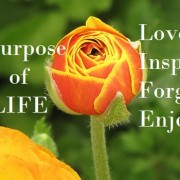“Whether you believe you can do a thing or not, you are right.” – Henry Ford
What is the psychology of a high performer? I’m not taking about the habits or what do successful people do that make them that way. There are lots of books outlining the behavior of high performers. A better question might be, with so much information on how to be “successful,” why don’t more people have the life they want? On a psychological level what is the difference between high performers (those who get what they work toward) and low performers (those who are constantly stuck in the same rut)?
On a side note, this is not a discussion on how we measure success. Although it is important that you identify your Key Performance Indicators (KPI’s a phrase commonly used in business). If your goal is to be healthier what would be your KPI’s? A smaller waste, weigh less, muscular definition, lower blood pressure, maybe you’d like the endurance to run a marathon! When we are talking about health there are a number of KPI’s. KPI’s could be goals, or signposts that we are headed in the right direction. KPI’s are the objective results that are part of a larger vision.
I would also like to point out that many higher performers I’ve worked with are not happy. I don’t want to suggest that the psychology of a high performer is necessarily better than a low performer in terms of health, fulfillment, joy or happiness. We all hear about the famous actor who struggles with drug addiction, the successful executive who commits suicide, or the politician caught up in a sex scandal. High and low performers alike have their fair share of problems.
I am developing a pragmatic model for Performance Behavior/Performance Psychology based on my experience in trying to transform my life and as a coach helping my clients to so the same. I’ve come up with what I perceive to be a linear path of thinking that leads to high performance behavior after listening to hundreds of people. The Five Questions model is a framework I’ve developed in working with my clients. It’s a homework assignment that I ask my new clients to do before our first session together. This exercise allows for me to gauge their level of performance and the barriers to achieving goals.
The Five Questions
1) What do you want?
This is a simple question that I find most people answer like a kid writing a letter to Santa Claus. I’ve heard many times the idea that we work hard to buy things we don’t want to impress people we don’t like. What is it YOU really want? This question for many is not easy. Of course there is the standard, financial security, love, joy, acceptance, etc. but what does that look like to you? Knowing what you want must be objectively clear. High performers are very clear about what they want. They set goals and constantly measure success.
2) Why do you want it?
Are you driven by fear or purpose? I find that many wants are driven by fear, greed, social expectation, or sometimes a personal expectation that is meant to make one feel “GOOD ENOUGH.” What do I want, is not the same as what will make me feel OK about myself. The reason why we want is more important than what we want.
When we follow the GREAT framework, Rejecting Negativity comes before Excitement (Visioning) because we don’t let our negative factors influence our vision of ourselves or let it direct out actions. Why do you want what you want, should be in alignment with your LIFE purpose. It should be directly linked to what you LOVE, what INSPIRES you, a practice of FORGIVENESS, or what you ENJOY. Most important is should be free of social expectations that don’t make you happy. For example, you may become a doctor to help people, however if that vision is one your parents encouraged your whole life, it may not be the vision that makes you feel fulfilled because it may be covering a greater desire.
High performers are driven by purpose. They may be motivated by fear, greed, a desire to be enough but those who are most successful are in alignment with a purpose. They are driven by a higher purpose.
3) Do you believe what you want is possible?
This is not a YES/NO question. This is an introspective exercise. Dig deep. Is there any doubt? The slightest doubt in your ability will grown into negative thoughts that stop you from pursuing what you want! If you don’t believe you can get the job of your dreams, you might not apply. If you don’t believe the partner of your dreams will go out with you, you won’t ask him/her out. If you don’t believe in yourself than who will? If you don’t believe you can get what you want then what is stopping you? If you answer is yes than move to the next questions.
It goes without saying that high performers believe they are capable achievement. They have no doubt in their abilities and “act as if” when their confidence weakens.
4) Do you believe you are worth the time, effort and investment?
Again, not a yes/no question. You may believe what you want is possible but do you invest your time, effort and investment to get what you want? Or Do you make excuses. I don’t have time; I don’t have the energy. Our time is the most important resource and we give it away. We waste our time on TV, the internet, other people! You may believe you can accomplish your goals but you won’t take the time or investment to do it, or worse, you make the time and make the investment but you don’t put in the effort! You go through the motions blaming outside conditions for your poor results. You get the job of your dreams and you show up late, make mistakes, and lose your job!
High performers invest in their future. They work long and hard and invest in their education and often hire people to help them build skills. They put in the time, effort, and money to make their dreams come true.
5) Do you believe you are deserving of the reward and recognition?
At the heart of self-sabotage is the belief you are undeserving of what you want. These people believe they can get what they want but don’t try. They go through the motions always falling short of their goal. Then there are those few who know what they want, they are connected to a passion that drives them. They believe in themselves, they take the time, put in the energy and make huge financial investments in themselves and achieve their goals! Then they self-sabotage all their success. They got the thing they thought would make them happy. They got the job, the relationship, the recognition… then took it for granted. Or they didn’t take care of what they worked so hard to get. These people celebrate losing weight by going out to dinner and ordering desert and soon gain all the weight back. These are the people who get the degree and never go after a career they studied for. These are the people who get the relationship, then fail to nurture and cultivate their partnership. These are the people who deep down inside don’t believe they are deserving.
At some level those that sabotage their success are people who thought success would bring emotional rewards. A sense of love, belonging, accomplishment, pride… These people might have played the WHEN-THEN game. When I’m successful, then I’ll be happy. When I make more money, then I’ll feel less worried. When I get that relationship, then I won’t feel so lonely. When the goal doesn’t produce the feeling we self-sabotage.
This is why knowing what you want and why you want it is so important. If we are driven by our wants that are motivated by fear, greed, or a need to “be enough” getting what we want will not produce the feeling we truly desire.
High performers not only feel deserving of all they work for, in some cases their history of success makes they feel entitled to more. High performers are driven by passion, it is a game they enjoy playing.
The five Questions is a great framework to understand where you might be stuck. Don’t be surprised as your confidence, worth and esteem grow, what you want and why you want it will change. Continuous growth is when we constantly challenge what we previously thought was not possible. I’ll leave you with the most important advice I try my best to follow, that is remember to enjoy the journey and let faith guide you toward your destination.









